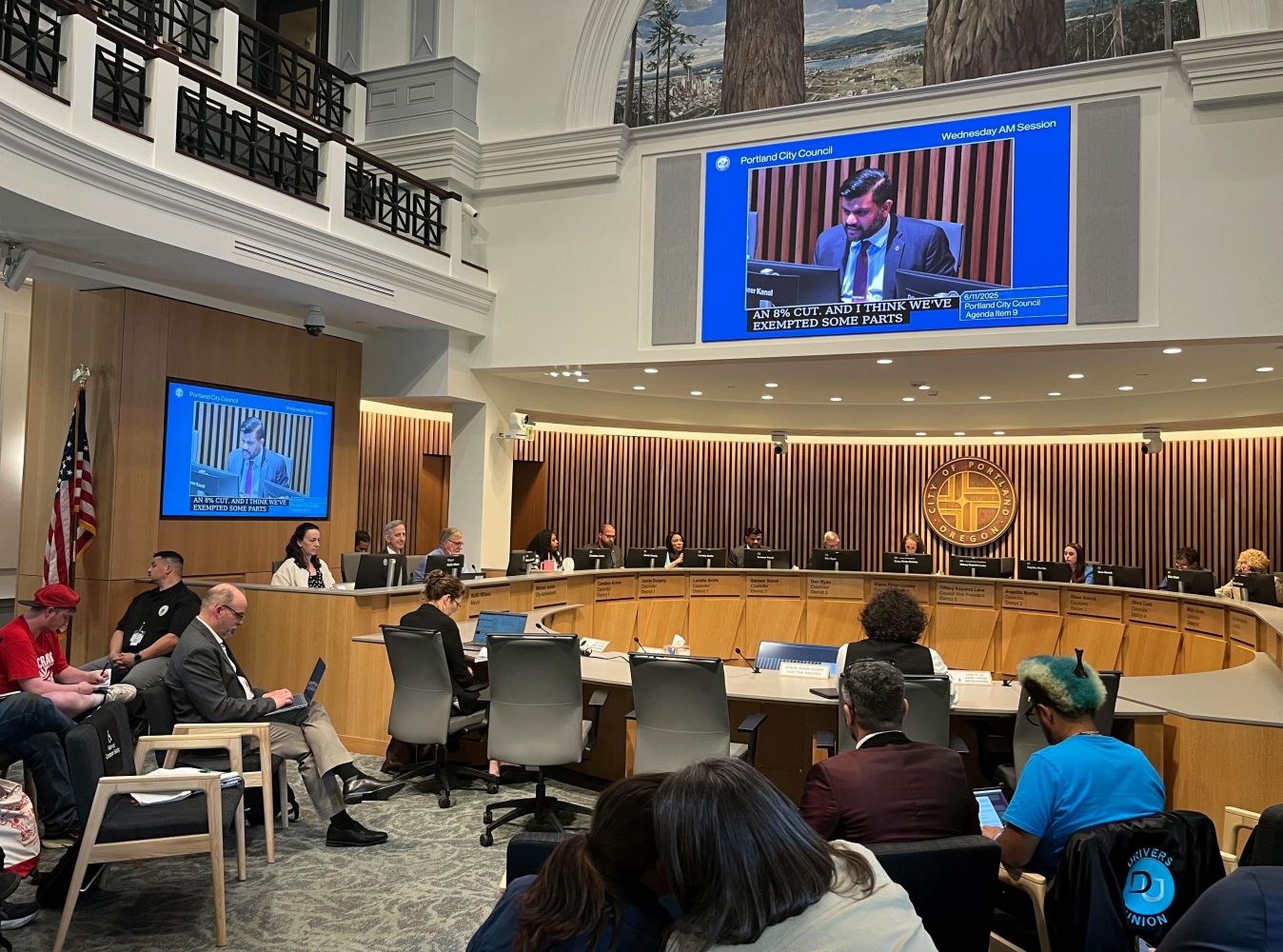

Published on: 08/19/2025
This news was posted by Oregon Today News
Description
Portland city councilors may have violated public meeting law when they text messaged each other during budget meetings earlier this year. But, because complaints about the alleged violations were filed too late, the city said Tuesday it won’t be taking any action against involved councilors.
Earlier this month, Willamette Week reported on several group text conversations between six left-leaning city council members who call themselves the Peacock — short for “progressive caucus.” That group includes councilors Jamie Dunphy, Candace Avalos, Sameer Kanal, Tiffany Koyama Lane, Angelita Morillo and Mitch Green.

Their text messages showed the councilors had been coordinating votes and actions during contentious city council budget meetings.
Willamette Week’s reporting inspired at least ten people to file complaints with either the City Attorney’s Office or the Oregon Government Ethics Commission, alleging the councilors’ group chat violated the state’s public meetings law.
Under Oregon’s public meetings law, a quorum of a governing body cannot discuss public business behind closed doors (or, in this case, via private text messages). On the 12-member City Council, seven people make up a quorum. But these text messages indicated that a seventh councilor was being looped in on these conversations.
At multiple times in their conversations, the six councilors mention talking with Councilor Steve Novick about joining them in support or opposition of a budget item. While not a member of the Peacock group, Novick has often sided with its members in council votes. In one text conversation, Avalos dubbed Novick the “7th man, an honorary member” of the Peacock.
Complainants said this perceived coordination of seven councilors outside of a public meeting may violate state law. City Attorney Robert Taylor responded to those complaints Tuesday, in letters obtained by OPB through a records request. Taylor didn’t reject the allegations outright.
Instead, he wrote, the complaints had been received too late to investigate. Under state law, grievances must be filed within 30 days of the alleged violation. Since these text messages were sent between March and June, Taylor wrote that “no additional action is required by the City.”
If the city were to find councilors in violation, they could have faced penalties up to $1,000 per violation. It’s not clear what constitutes a single violation — a single text message or the act of participating in a text thread more generally.
Taylor suggested that Peacock’s collaboration with Novick may have violated state law, writing that “if six members of Council meet they should take care not to deliberate with a seventh.”
Taylor said the complaints raised “important concerns” that will inform future training for the relatively new councilors, who are still adjusting to a different form of government. While all councilors received training from the state’s ethics commission on these laws before entering office, their onboarding came while the commission was still making sense of a new state public meeting law.
The law, adopted by the Oregon Legislature in 2023, prohibits “serial communications” among the quorum of a governing body, even when an intermediary is used to “communicate among a quorum of the members.”
Taylor noted that the commission itself has expressed confusion with the law. He referenced comments made by Commission Vice Chair Shenoa Payne, in response to questions raised at an August commission meeting.
“I’m struggling with understanding at what point the violation occurs and who has violated the Public Meetings Law,” Payne wrote, according to Taylor. “And if we don’t understand, then how are we supposed to expect public officials to know when the violation has occurred and whether they violated Public Meetings Laws and how to instruct them not to?”
Taylor wrote that this statement “summarizes well the challenge faced by local governments and the Ethics Commission as we all try to implement the new rules while important questions remain unresolved.”
He urged the state Legislature to provide clarity to local governments.
News Source : https://www.opb.org/article/2025/08/19/portland-city-council-group-chat-may-violate-state-laws-complaints-too-late/
Other Related News
08/19/2025
Nexstar Media Group is buying broadcast rival Tegna for 62 billion bringing together two m...
08/19/2025
PUBLIC NOTICE The Southern Coos Health District Board of Directors will hold a special mee...
08/19/2025
A report from the task forces Tax Advisory Group particularly took aim at Multnomah County...
08/19/2025
The Oregon Health Authority on Tuesday lifted the recreational use advisory on the Willame...
08/19/2025








